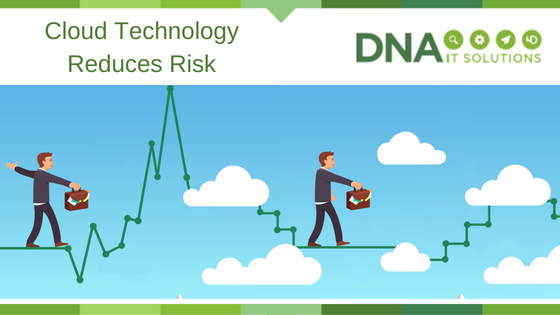While many businesses may prefer to view their IT as a ‘set it and forget it’ necessity, the reality is that outlay and maintenance costs can have a huge impact on most operations. From IT consultancy and auditing to risk management and real-time maintenance issues, IT can easily become a major business headache.
Switching from in-house to cloud technologies
One very real solution that will work towards resolving many of these issues is switching from in-house to cloud technologies. In particular, such a change is likely to impact mostly on issues related to IT risk and data security.
1. SaaS – Software as a service
One of the more easily implemented routes open to all types of small to medium-sized operations is by utilising cloud technology through SaaS (Software as a Service). From DTP and email handling to accounting and even total supply chain management, SaaS has been keeping the IT of all types of business safe and secure for many years now. Apart from the implications relating to disaster recovery and handling the “hot potato” of self-owned software programs, security alone is likely to make SaaS an attractive option for businesses looking to reduce IT risks.
2. Protecting your data
Operators of cloud technologies have already proven their worth as IT data protectors. It’s likely that more than a few CEOs have already saved their expensive shirts from sweat damage by being able to retrieve their otherwise corrupted data from the cloud. With the ability to replicate all of a business’s data, critical operations can still run from anywhere in the event of local issues – including anything from power outages to flooding or fire.
3. Less reliance on third party suppliers and agencies
Because many small and medium-sized businesses have limited in-house IT management, they tend to rely more on third-party suppliers who have no vested interest in their business apart from a cheque at the end of every month. Further, even in environments that utilise the company’s own key IT personnel, sickness and other issues will still impact on operations. Cloud-based IT options will limit these issues along with further reducing the number of individuals who have sight of and access to your data, and that can only be good news.
4. Going ‘all the way’ with managed cloud services
A fully managed cloud services system will remove the burden of running an IT department from IT managers’ shoulders altogether! There are plenty of options out there that operate ongoing pay-for-use packages that virtually remove all the risk of the “halfway house” self-serving options. If these aren’t attractive enough reasons for a business to consider managed cloud services, perhaps the huge savings in staff, training, and updating will be.
5. Choosing what works best for your business
While cloud technology certainly doesn’t come neatly packaged in a one-size-fits-all format, a diligent review of any business’s IT security risks is more than likely to reveal areas that would benefit. Choosing the best options for a business’s specific and unique IT needs is, therefore, surely going to be the best way to proceed.

